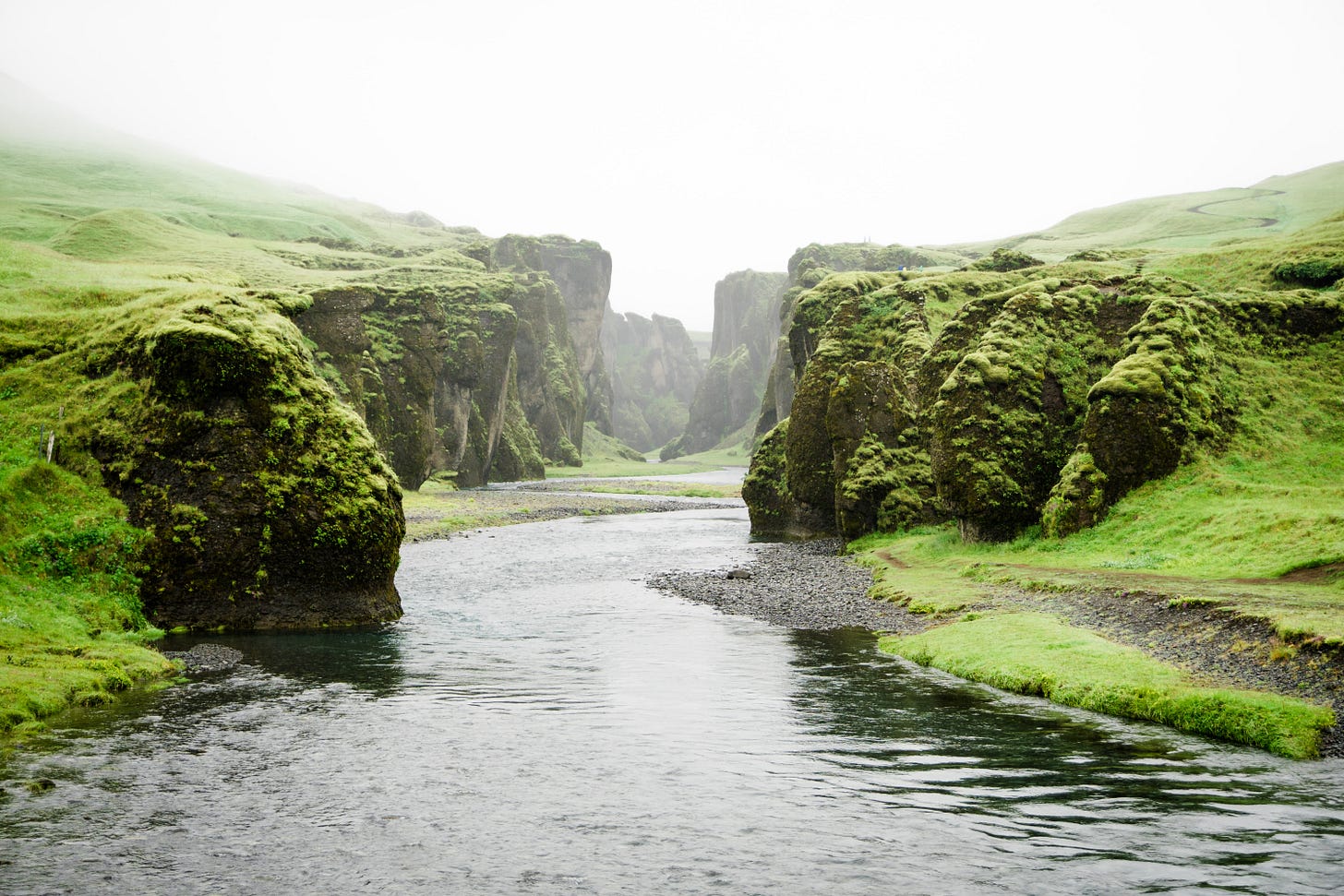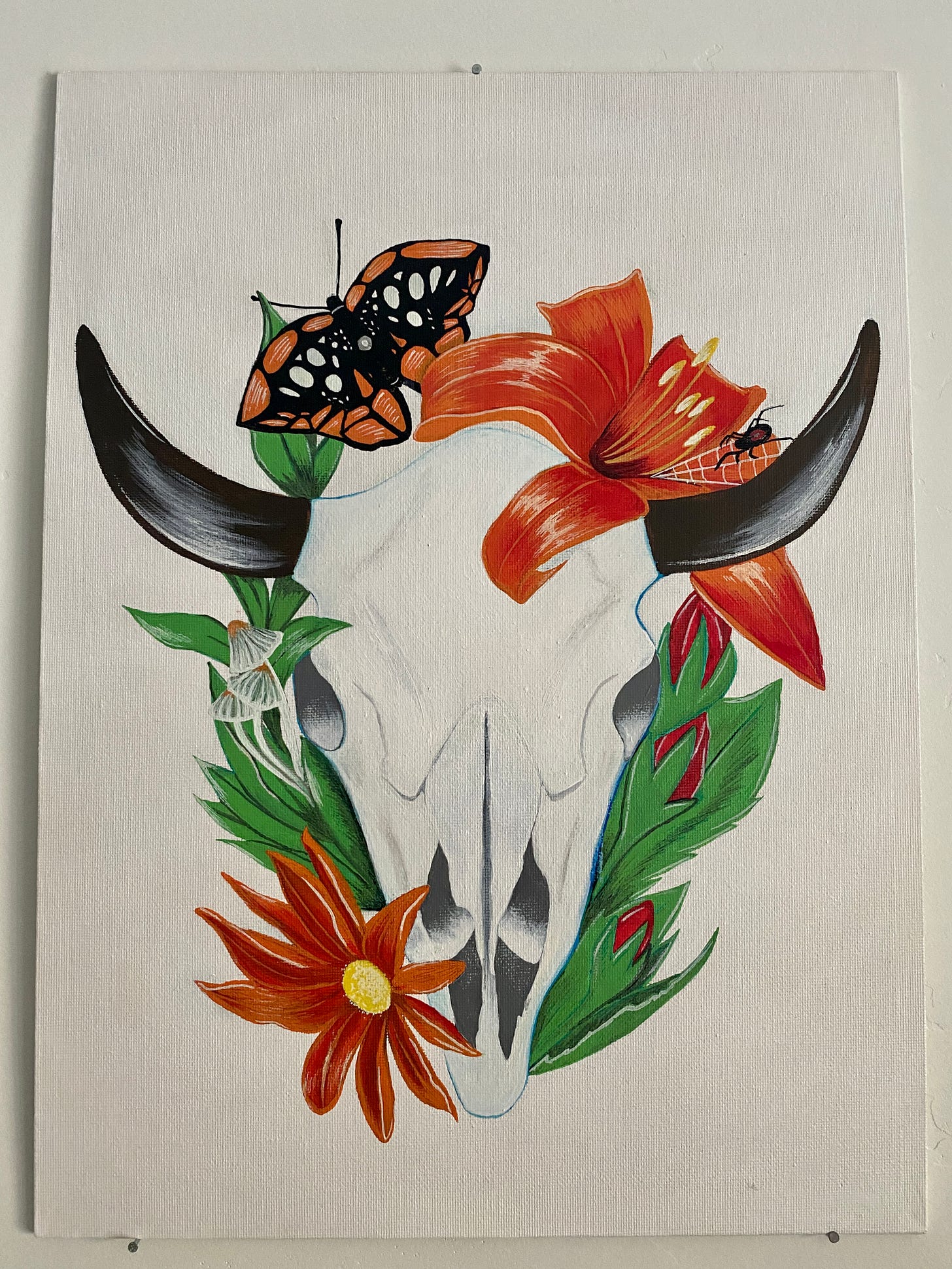
I love to hear someone say that we’re doing it all wrong. If a bunch of people are floating down a river, unaware of a hundred-foot drop right around the bend, hopefully one of them hears the sound of the falls, sees the stark edge of the river and sounds the alarm. And I think that moment of recognition that we’re all about to be fucked is full of potential. Do we laugh? Do we cry? Do we hug each other in one final embrace… maybe a kiss?
I recently heard Paul Kingsnorth on the Death in The Garden podcast, when he said, “Everything is a story and every culture and civilization is built on stories, so if our world is crashing into the barricades it’s because we’re telling ourselves the wrong stories.” Quickly and clearly, he cites the falsities that undergird culture and civilization:
Humans being separate from nature
Human nature being superior to others
Human ability to control everything through technology
Linear progress, and
Notions of inevitable progress
This story dictates the way societies and their leaders respond to the ongoing biological annihilation, the ways we define ‘progress’, how we live our lives, and how we relate to the world. These themes seem to co-opt human emotion, creativity, and energy the way atrocities are used by oppositional forces to manufacture consent for war. The cultural paradigms Kingsnorth pointed out still exist because they are enticing, they look glamorous, and they’re decorated with pretty little solutions so that one witnessing a mass extinction feels compelled to move on with their life. It seems more likely that these cultural paradigms don’t hold the answers the world is looking for, but rather, are the purveyors of the problems themselves.
It can help to take a step back and consider the whole picture. The mainstream solutions for the climate crisis all take industrial capitalism for granted, yet industrial capitalism is underpinned by human separation from nature, human dominion over nature, and humanity’s ability to control nature through technology. These themes seem like what got us here in the first place. The story of the constant and unstoppable progression of industrialized, capitalist civilization itself is a paradox that tells us this world is the best we can do.
People must actively opt out of the absurd stories western civilizations are built on. The myths of civilization and culture are deeply embedded in everyday life. What the future holds is wholly dependent on people’s effort to step outside of the fray of society.
Responsibility belongs to those who stand away from the stories of civilization and critique them, pointing out what does and doesn’t work, what’s breaking down our common humanity, and then willfully trying to form another way of life. There’s this rich opportunity for a person to change their world when they question the mythology they live by. When people begin to believe that humans are not inherently greedy, backstabbing, or selfish, but instead are deeply concerned with altruism, cooperation, and generosity, cultural change can occur. Cultural change creates altered behavioral patterns, social norms, and cultural traits, ultimately resulting in new social structures.
The creation of new social structures, new behaviors, and new cultural traits are inherent to cultural change. “Cultures come from a few people in a certain place doing something new,” Kingsnorth says, “We have old stories, we have old spiritual paths, we have understandings of indigenous ways of living… it’s kind of all out there waiting for us.”
The people not bound to the notion of keeping this machine going are the ones sowing seeds for the future. Their responsibility is to the question of what’s next, and how to plant that seed here and now. We may well not be around to see the fruits of those trees, but we’ll be the ancestors, and our commitment is to do well at that.
Thank you for reading this piece by our friend Jack Quon. Please subscribe to his Substack and give him a follow on Instagram to see his amazing art! We still need to frame the Death in The Garden inspired piece he made for us, but please ignore that as you behold its beauty.




